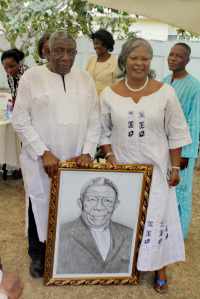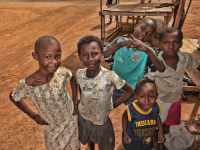 You may have heard that many of the world’s languages are dying. That might lead you to ask why translate the Bible if languages are dying. It’s a good question. The answer is simple. But let’s back up a bit before answering it.
You may have heard that many of the world’s languages are dying. That might lead you to ask why translate the Bible if languages are dying. It’s a good question. The answer is simple. But let’s back up a bit before answering it.
A while back I heard one of Ghana’s leading linguists, a man who spent decades helping to translate the Bible into 13 language in Ghana and neighboring countries, Professor Gilbert Ansre, speak about Ghana’s languages. Here’s what he said:
‘The numbers of speakers of most of the indigenous languages are on the increase and the vast majority of our mother-tongues are not about disappear or “die”. They are here to stay for a long time and need to be reckoned with…’
Professor Ansre was talking about Ghana. In other places language are dying in significant numbers. Those places include the Americas and Melanesia. The situation simply is not the same in Ghana. In fact, in all of West Africa few of the hundreds of languages are dying. Most are increasing in number just as Professor Ansre said that they are in Ghana. Data gathered independently by governments, churches, linguists and others all lead to this same conclusion.
Why are most of Ghana’s languages growing? Because of population growth. The population growth rate in Ghana is 2.5%. At that rate, the population in Ghana will double in 29 years. Since almost 100% of the native population of Ghana speaks at least one Ghanaian language, the number of people speaking those languages increased by 28% during the last decade and doubled in the last 29 years.
The evidence of population growth is everywhere. When our son Matthew visited with his fiancée who had never been to Africa, she keep commenting on all the young children she saw. They are with their mothers who sell food or vegetables by the road or in the market. Children are everywhere. The church we attend has an attendance of about 500. There are about 100 children in Sunday School, in spite of fact that many who attend are unmarried university students without children.
To see the effect of population growth on keeping languages alive, let’s take an imaginary case of a language spoken by 100,000 people where two thirds of its speakers stop speaking it in the coming 50 years. Here are the numbers using Ghana’s annual population growth rate of 2.5%.
Number of speakers of the language today 100,000
Number in 50 years (2.5% compounded) 335,000
2/3rd stop speaking the language -224,000
Remaining 1/3rd 111,000
As you can see, even though 2/3 of the people stopped speaking the language, there were still more people speaking it at the end of the 50 years than there were at the start. Besides, it appears that very few of Ghana’s languages will lose 2/3 of their speakers in the coming 50 years. On the contrary, the number of people speaking Ghanaian languages will probably double or triple.
Back to the original question – why translate the Bible if languages are dying. The simple answer is that we do not translate the Bible into dying languages, but rather into languages that are not only alive; they are growing.
If you liked this, you might also like Dying Langauges or Ten Thousand.






